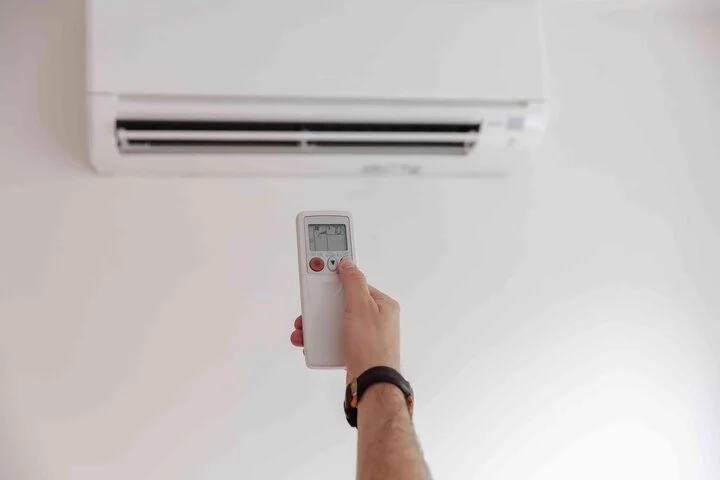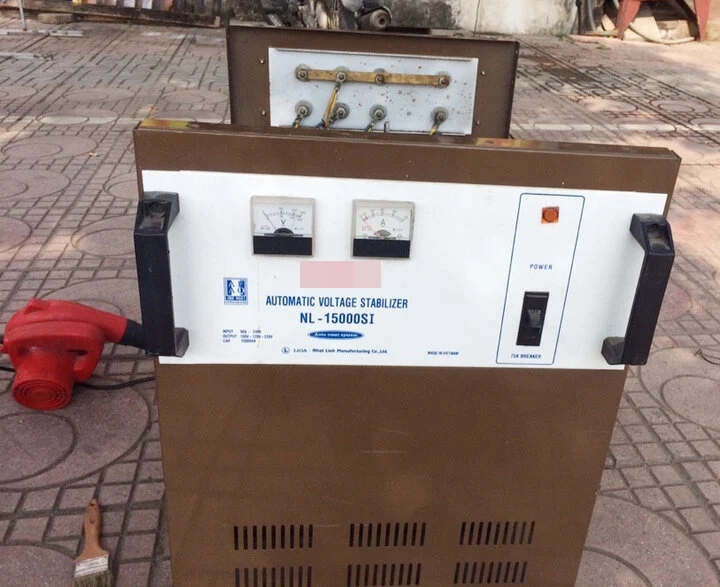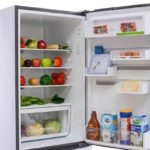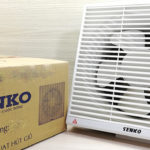Air conditioners are a necessity for many households, especially during hot summer months. However, unstable power sources can sometimes cause issues with their operation.
Should you use an air conditioner when the power supply is weak?
During hot seasons, it is inevitable that the power supply will weaken during peak hours of electricity usage. If the voltage does not drop too far below 220V, the air conditioner can still function. However, its cooling efficiency will decrease, and it may consume more electricity.

Should you use an air conditioner when the power supply is weak? It depends on the severity of the weak power. (Image: TechBullion)
If the voltage drops to 170V or 150V (or lower), it is best to refrain from using the air conditioner as it may not function at all or operate erratically, leading to potential damage to its internal components.
Ideally, air conditioners should not be operated at low voltage levels. All air conditioner compressors are designed to work within the range of 180V to 240V.
How does a weak power supply affect air conditioners?
Using an air conditioner with a weak power supply can lead to the following issues:
Reduced operational efficiency
A weak power supply prevents the air conditioner from operating at maximum capacity, resulting in ineffective cooling. The room may not reach the desired temperature, and the compressor has to work continuously, leading to energy wastage.
Increased likelihood of damage
A weak power supply can cause the air conditioner to restart multiple times or operate erratically, leading to increased wear and tear. Components such as the compressor, fan, and electronic circuit boards are more susceptible to damage when the voltage is unstable.
Higher repair costs
When the air conditioner is damaged due to a weak power supply, repair and maintenance costs increase. Repairing or replacing the compressor and electronic components can be expensive and inconvenient.
Safety hazards
Using an air conditioner with a weak power supply can pose electrical safety risks, such as short circuits and explosions. This endangers not only the equipment but also your family’s safety.
Causes of weak power supply
– Overloaded electrical system: In many areas, the electrical system may become overloaded due to increased demand, especially during the summer when multiple cooling devices are used simultaneously.
– Low-quality or aged wiring: Substandard or aged wiring can result in weak voltage. Loose connections and oxidized wires also contribute to reduced power transmission efficiency.
– Technical faults: Faults at substations, damaged transmission lines, or issues within the distribution system can also cause weak power supply issues.
– Simultaneous use of multiple high-power appliances: Using too many high-power electrical appliances simultaneously can decrease the voltage in your home below the level required by the air conditioner, leading to unstable operation.
Solutions to weak power supply issues
During periods of weak power supply, you can implement the following solutions:
Use a voltage stabilizer
A voltage stabilizer helps maintain a stable voltage for the air conditioner, protecting it from voltage fluctuations. This not only ensures efficient operation but also prolongs the lifespan of the appliance.

Using a voltage stabilizer helps maintain a stable voltage for the air conditioner, protecting it from voltage fluctuations. (Image: Cielo WiGle)
Upgrade your electrical system
If your home’s electrical system is outdated or insufficient, consider upgrading or replacing the wiring and electrical panel to ensure adequate power for your air conditioner.
Regular inspection and maintenance
Schedule regular inspections and maintenance of your home’s electrical system to identify and address any issues promptly. Ensure that all electrical connections are secure and that the wiring is in good condition.
Use energy-efficient appliances
Energy-efficient appliances reduce the load on your electrical system, providing a more stable voltage for your air conditioner. For example, you can replace incandescent light bulbs with LED bulbs and use energy-efficient fans.
Stagger the usage of high-power appliances
When dealing with weak power, avoid using multiple high-power appliances simultaneously. Stagger their usage to reduce the load on your electrical system.
Tips for using an air conditioner with a weak power supply
– Avoid using the air conditioner during peak hours: Refrain from using the air conditioner when electricity demand is high. Instead, opt for off-peak hours when the voltage is more stable.
– Combine fans with air conditioners: This strategy reduces the load on the air conditioner and saves energy. Fans help circulate cool air in the room, enhancing the effectiveness of the air conditioner.
– Set reasonable temperatures: Avoid setting extremely low temperatures. Instead, opt for a comfortable range of 25-26 degrees Celsius to ensure efficient operation and energy savings.
– Regularly maintain your air conditioner: Schedule periodic cleaning and maintenance to ensure optimal performance and longevity. Replace any faulty components promptly.
– Proper installation: Ensure that your air conditioner is installed correctly and positioned in a well-ventilated area, away from direct sunlight, for efficient and economical operation.
According to VTC News
Exploring the Pros and Cons of Sleeping in an Air-Conditioned Room
Is sleeping with an air conditioner a good idea? As concerns over the adverse effects of air conditioning on our health increase, it’s important to understand the risks and rewards of using air conditioning while sleeping. Let’s examine the benefits and drawbacks of sleeping with an air conditioner, and the protective measures one should take.
How to Maximize Air Conditioning Comfort for Babies in the Home
Having a new baby in the home brings many considerations and responsibilities, none more important than making sure the baby is safe and healthy. One way to achieve this is proper air conditioning usage. Read on for helpful tips on how to make the best use of air conditioners to keep your newborn safe.







































